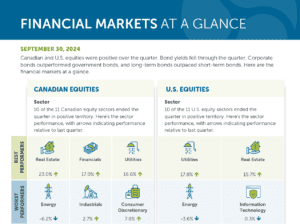The IRS Needs Billions to Make Trillions

Serious, long-term money for technology is the only thing that can help the IRS to overhaul its auditing system and have any chance at reclaiming the billions, if not trillions of dollars that go uncollected every year.
That’s because the key to better tax compliance isn’t going to come just from conducting more audits — it has to come from smarter use of taxpayer data. When the IRS can match tax filings to third-party data on income, such as a W-2 tax form sent to it from an employer, compliance rates are close to 99%. When it can’t, the compliance rate drops to 50%.
The biggest culprits of underreporting tend to be business owners. It’s difficult, not to mention time-consuming, for the IRS to verify what they’re reporting through its current audit process and technology system. And I’m not talking about mom-and-pop small business owners.
A sizable chunk of the tax gap is estimated to come from sophisticated pass-through business owners (sole proprietors who report business income on their personal tax returns) who report well above $400,000 in income, according to Charles Rossotti, who served as IRS commissioner in the late 1990s.
Limited Abilities
Remember, better technology doesn’t mean the IRS will be getting its hands on any new data. This is all information the agency has on hand already, but doesn’t have the ability to sift through.
Rossotti estimates the IRS currently has about 2 billion tax information reports on about $18 trillion worth of income, but uses just a fraction of that data due to funding constraints and outdated technology.
For example, the IRS has about 30 million K-1 forms, which show income from businesses structured as partnerships, totaling $1.2 trillion of income, but is basically blind to it. If it had the technology to systematically use the data on K-1s and match it with what’s reported on income tax returns, it could go a long way toward identifying tax scofflaws.
These sorts of changes would have a deterrent effect. If high-earning business owners and savvy tax planners know the IRS is starting to harness its data, they’ll change their behavior.
Yes, there will always be smart tax lawyers and accountants who will be able to manipulate the tax code and minimize their clients’ taxes in the grey area where it’s not quite evasion, but not quite fair, either. That’s the responsibility of lawmakers to address, not the IRS. But in the meantime, give the agency the money it needs to enforce the laws already on the books.
Alexis Leondis is a Bloomberg Opinion columnist covering personal finance. Previously, she oversaw tax coverage for Bloomberg News.
(Image: Chris Nicholls)





